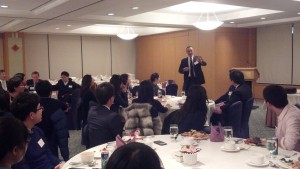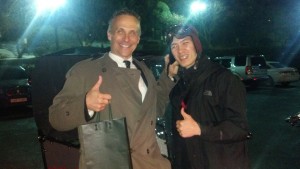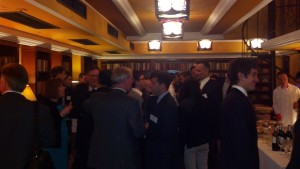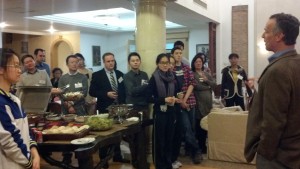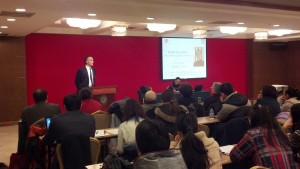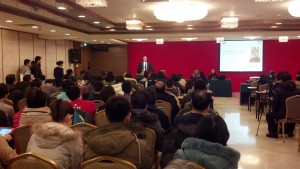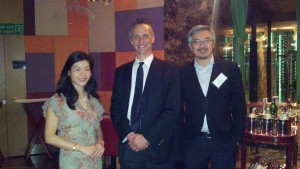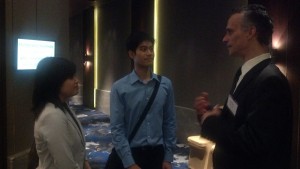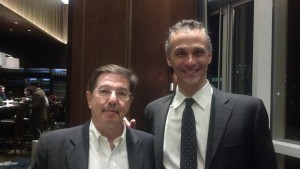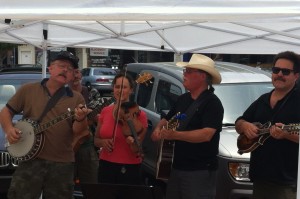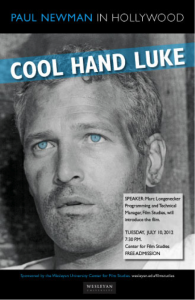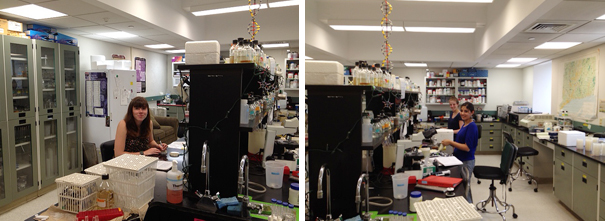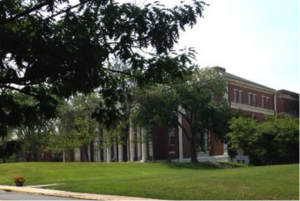This is cross-posted from Inside Higher Education.
Just before the semester began I traveled to Beijing to deliver a lecture entitled “Why Liberal Education Matters” at the Institute for Humanistic Studies at Peking University.
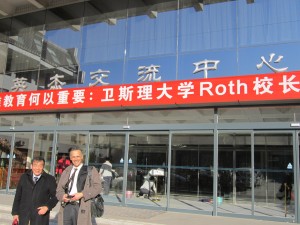
I didn’t quite know what to expect. It was intersession there, and I was told that there might be a dozen faculty and graduate students in attendance. Imagine my surprise when I entered a packed lecture hall. There were more than 200 faculty members and students present, despite the vacation.
In China there is increasing interest in liberal education, while here in the United States there is plenty of pressure on liberal learning from people who want our education system to have a more direct connection to the workplace. They seem to think that an education for “the whole person” is just too soft in this hypercompetitive technology-driven age. These folks want a more routinized, efficient and specialized education to train students for jobs. Yesterday’s jobs, I tend to think.
In the States, I spend a fair amount of time trying to show that this call for more efficient, specialized education is a self-defeating path to conformity and inflexibility – just the kinds of traits that will doom one to irrelevance in the contemporary culture and society. How would this message resonate in China, which has had an educational system that is even more test-driven and hyperspecialized? I decided to take a historical approach, showing how our modern notions of liberal learning emerge from currents of thought from Thomas Jefferson to Richard Rorty. Perhaps in the discussions after the talk I would learn about whether there were elements from Chinese traditions that would resonate with our history, and that would have lessons for our contemporary situation.
My translator, the excellent Liu Boyun was ready to leap in every few sentences, a daunting prospect given that I didn’t have a text to read but was going to “talk through” some key ideas in American intellectual history. I structured the talk using the concepts: Liberate, Animate, Cooperate, Instigate/Innovate. Of course, they don’t rhyme in Chinese…
With “Liberate,” I talked about Jefferson’s ideas about education that led to the founding the University of Virginia. Jefferson was a man of the Enlightenment, and he thought that education would liberate us from what Kant had called “self-imposed immaturity.” He was determined that students not have to choose their specific course of learning at the very start of their studies. You should discover what you are going to do through education – not sign up to be trained in a vocation before you know who you might be and what you might be able to accomplish. Sure, there would be mistakes, false roads taken. But, Jefferson wrote to Adams, “ours will be the follies of enthusiasm” and not of bigotry.
I pointed out, as you might expect, the enormous inconsistency in Jefferson’s thinking. He was a slaveholder who tied education to liberation. He was a determined racist who wrote of the importance of allowing young people to fail as they found their enthusiasms – obviously, only some people. Having good ideas about education doesn’t make one immune to scandalous hypocrisy.
With “Animate,” I turned to Ralph Waldo Emerson’s notion that education is setting souls aflame. Emerson saw routinized education as a form of corruption, and he urged his auditors to throw off the shackles of imitation that had become so prominent in colleges and universities. Colleges serve us, he wrote, when they aim not to drill students in rote learning but to help them tap into their creativity so that they can animate their world. I sensed a strong positive response to this from the audience, many of whom want to move away from the regime of test-taking that structures Chinese secondary education (and is increasingly prominent in the United States). But what did they think of another of Emerson’s notions I talked about, that of “aversive thinking,” the kind of thinking that cuts against the grain of authority?
With “Cooperate” I talked about three American thinkers associated with pragmatism: William James, Jane Addams and John Dewey. From James I emphasized the notion that “the whole function of thinking is but one step in the production of habits of action.” Liberal education isn’t about studying things that have no immediate use. It is about creating habits of action that grow out of a spirit of broad inquiry. I also talked about his notion of “overcoming blindness” by trying to put oneself in someone else’s shoes. Seeing the world from someone else’s perspective without leaping to judgment was fundamental for James.
That notion of overcoming blindness toward others was also key for Jane Addams, whose idea of “affectionate interpretation” I stressed under the “Cooperate” rubric. Addams allows us to see how “critical thinking” can be overrated in discussions of liberal education. We need to learn how to find what makes things work well and not just how to point out that they don’t live up to expectations. For Addams, compassion, memory and fidelity are central aspects of how understanding should function within a context of community. These notions clearly resonated with the audience, and a few colleagues pointed out that Addams’s thinking in this regard had strong affinities with aspects of Confucian traditions.
My last thinker within the “Cooperate” rubric was John Dewey, and I cited his notion that philosophy “recovers itself … when it ceases to be a device for dealing with the problems of philosophers and becomes a method, cultivated by philosophers, for dealing with the problems of men.” This is what pragmatic liberal education should do, too: take on the great questions of our time with the methods cultivated by rigorous scholarship and inquiry.
For Dewey, no disciplines were intrinsically part of liberal education. The contextual and conceptual dimensions of robust inquiry made a subject (any subject) part of liberal learning. Furthermore, Dewey insisted that humanistic study would only thrive if it remained connected to “the interests and activities of society.” The university should not be a cloister; it should be a laboratory that creates habits of action through inquiry laced with compassion, memory and fidelity.
I brought my talk to a close under the rubric, “Instigate/Innovate.” I referred to my teacher Richard Rorty’s remarks on how liberal education at the university level should incite doubt and challenge the prevailing consensus. Rorty played the major role in recent decades in bringing American pragmatism back to the foreground of intellectual life, and he spoke of how higher education helped students practice an aversive thinking that challenged the status quo. That is key, I stressed, to the power of liberal education today: instigating doubt that will in turn spur innovation. We need not just new apps to play with, but new strategies for dealing with fundamental economic, ecological and social problems. Only by creatively challenging the prevailing consensus do we have a chance of addressing these threats to our future.
I was surprised by the enthusiasm with which these remarks were greeted. I’d imagined, so wrongly, that talk about challenging the prevailing consensus would have met with a chilly reception at Peking University. On the contrary, the professors and students in the audience were looking to their own traditions and to those of the West for modes of aversive thinking that would empower them to meet the massive challenges facing their society. In the conversations after the talk, they spoke of an evolving education system that would be less concerned with plugging people into existing niches, and more concerned with teaching the “whole person” in ways that would liberate students’ capacities for finding their own way while making a positive difference in the world. Free speech and free inquiry will be crucial for that evolution.
The ongoing conversations following my lecture at Peking University inspire me to think that thoughtful inquiry might enable us to overcome more of our blindness to one another and to the problems we share. Will pragmatic liberal education instigate skillful and compassionate strategies – here and abroad – for addressing our most pressing challenges? My brief visit to Beijing gave me confidence that it is more than just a “folly of enthusiasm” to think that it will.



